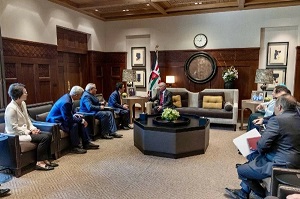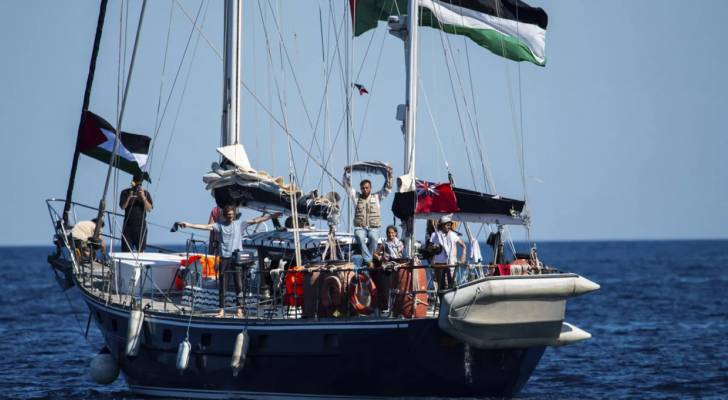Facing climate change together - By Hana Namrouqa, The Jordan Times
The report warns that until 2029, the weather will likely be 1.2°C to 1.9°C warmer than the average temperature from 1850 to 1900, which is the “pre-industrial era” baseline scientists use to measure global warming.
This new projection dangerously inches us closer to the 1.5°C threshold that was agreed upon in the 2015 Paris Agreement, where scientists and climate experts warned that crossing this 1.5°C mark increases the risk of severe, irreversible climate impacts.
The WMO daunting report of a rise of 1.2°C to 1.9°C suggests that we are fast approaching, and possibly exceeding, this threshold.
This global projection hits close to home. In September last year, I had the opportunity to visit the WMO headquarters in Geneva, as part of a media tour organised by the Swiss Embassy in Amman to familiarise Jordanians with Switzerland’s leadership in climate and water conservation technologies.
During my time at the WMO, I saw firsthand how this global body operates, from data collection and forecasting to coordination with countries like Jordan. But more importantly, I sensed the urgency from the officials I met, who spoke with clarity and conviction about the need to respond to the warming climate with both speed and seriousness.
But how will this new projection affect us in Jordan, and what can we do, both government and individuals, to alleviate the impact of the expected rise, and also adapt to this reality; given the prolonged period of warming forecasted over the coming four years?
Local and international reports on global warming and climate change predict that for a country like Jordan, the projected global temperature rise could have several serious implications, including hotter and longer heatwaves and thus worsening water scarcity as rising temperatures mean more evaporation, fluctuant rainfall and rising demand for water, which further pressures already-stressed surface and underground water resources.
The expected warming weather will also have effects on the agriculture sector as crops could fail under heat and reduced water supply, while pressure on Jordan’s energy sector to cool down households and buildings could exacerbate.
Such expected environmental, economic and social challenges underscore the urgent need for adaptation measures (like efficient irrigation, water conservation, green infrastructure), faster and more serious investment in renewable energy and boosting regional cooperation on water and climate resilience.
There has been a strong regional movement for more than a decade now on regional cooperation on transboundary water under the promising Blue Peace Middle East initiative. Leveraging such regional initiatives in light of the WMO’s new report becomes a necessity to accelerate the implementation of local and regional policies on water conservation, resilience and protection of water resources. This report reminds us of the importance of treating water scarcity not merely as a technical issue but as a strategic and political challenge.
In a climate-vulnerable country like Jordan, this projected temperature rise means the climate crisis is no longer distant or theoretical, but unfolding and will directly affect every aspect of our lives.
The message has always been clear, and remains urgent more than ever as we feel the impact of global warming increasingly. We must act, collectively. It is not only the responsibility of the government; it is a duty that we all shoulder to ensure a safe and bright future for the generations we seek to protect.
Let’s begin with simple, practical actions and do our part too by saving water at home, reducing energy consumption, changing the way we transport, reducing food waste, recycling and sharing the message among our friends and family to adopt green habits.
Individual action matters, not just because of what we do, but because our behaviour influences others, and when thousands of people make small changes, it creates big impact, even in a water-stressed, climate-vulnerable country like Jordan, every one of us can be part of the solution.




